#and tampopo was very fun!
Explore tagged Tumblr posts
Text
December 2023




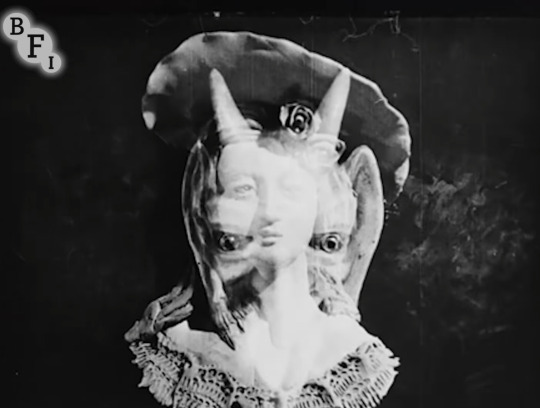
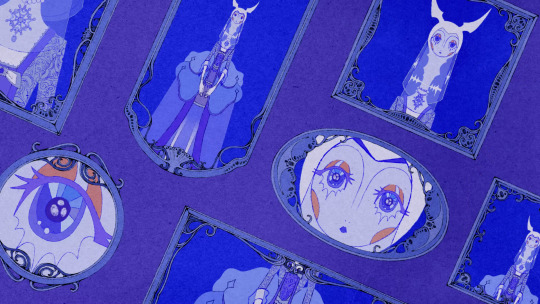

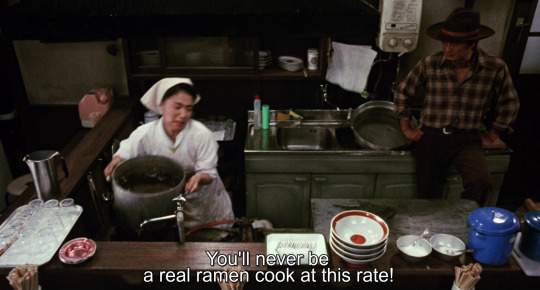

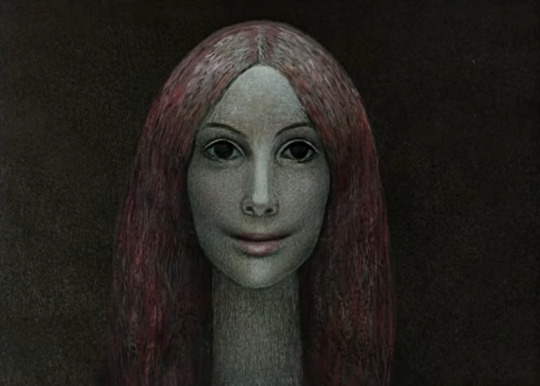

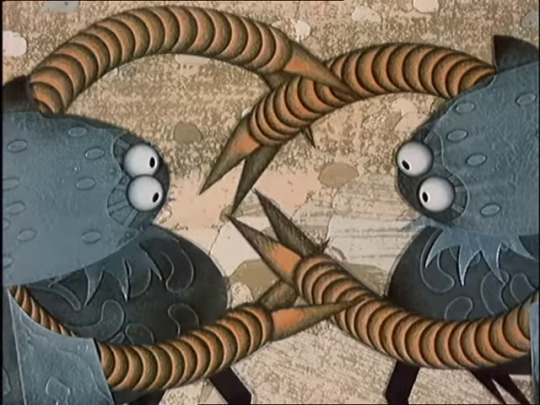



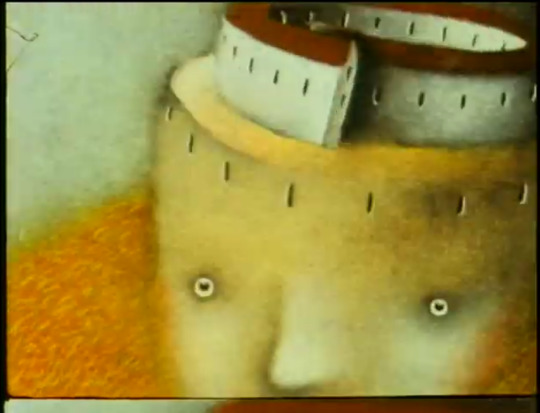
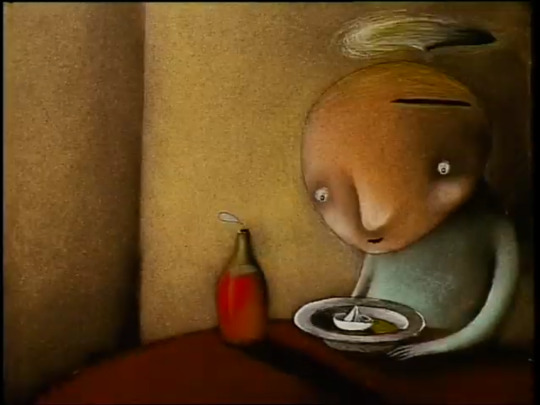

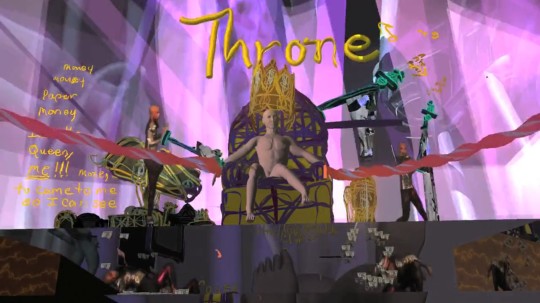

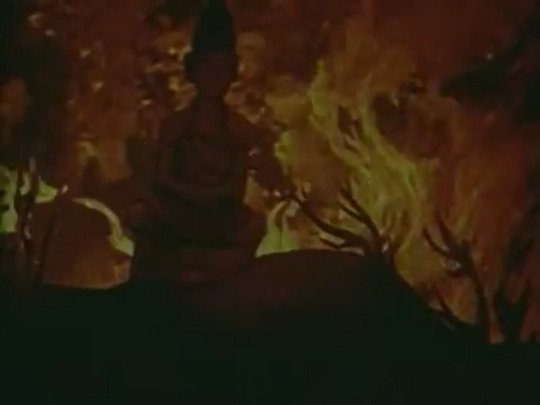
My favorites this month were Nighthawk, Fest, The Fall and Bubble Bath!
Nighthawk - Špela Čadež (2016), The Fall - Boris Labbé (2018), Absent Minded - Roberto Catani (2013), Bubble Bath - György Kovásznai (1979), Animated Putty - Walter R. Booth (1911), Fest - Nikita Diakur (2018), Le Parc aux Cerfs (2023), Tampopo - Jūzō Itami (1985), Cloudy - Filip Diviak & Kateřina Čupová (2018), The City - Sabin Bălașa (1967), Krabi - Václav Mergl (1976), Amane Diary - Amane Oda (2021), Stupid Dinner - Victoria Vincent (2023), Kitten - Viktor Minakhin (1968), La Sagra - Roberto Catani (1999), Il pesce rosso - Roberto Catani (1995), dream girls - TAEETIMEE (2023), Country Ball 1989–2012 - Jacolby Satterwhite (2012), A Short��Vision - Peter Foldès & Joan Foldes (1956), Ave Maria - Ivan Ivanov-Vano & Vladimir Danilevich (1972)
#things i've (re)watched this month#Bubble Bath is on a whole other level it's been a long time since i've loved a movie so much#Le Parc aux Cerfs was so pretty!!!!#and tampopo was very fun!#2023
15 notes
·
View notes
Text
I was looking for an old post and realized that I never did a five-star film retrospective last year, and I did find that a fun list to compile, so here's the movies I rated five-stars on letterboxd for 2023 and 2024 under the cut:
new to me, 2024:
Strange Days
Memories of Murder
Werckmeister Harmonies
The Zone of Interest
Poor Things
A Matter of Life and Death
The Train*
Return to Reason (the sequence of four short films by Man Ray that was recently re-restored, not the individual short film of the same name)
(and, well, Band of Brothers, but miniseries, not movie)
*I'm sure I've seen it before, or most of it, in passing when I was a kid and watched TCM all the time? but definitely not recently enough or with enough adult understanding of the historical context that it didn't feel completely new to me.
new to me, 2023:
Jaws (I know, I know. Yes I had really never seen it, as far as I know not even part of it. I wasn't intentionally not watching it, it just never came up?)
In the Mood for Love (this was maybe more intentional, I did know it would be incredible and really appreciated seeing it for the first time in a theater)
Lost Highway
Locke
Killers of the Flower Moon*
Junk Head
Tampopo
*the only five-star rating I don't remember clearly enough to feel confident I'd stand by the rating; on a rewatch I suspect it might be more a very respectful 4.5
Obviously slower movie years for me than the outlier of 2022, especially 2024. I always feel like I'm rating things overenthusiastically in the moment, but I do still rate fewer things five stars than 4.5, and fewer 4.5 stars than 4. I just tend to watch movies I expect to like, I think. Once again I nearly never reviewed a five-star movie (and didn't review that many movies, period, in these years) but the exception was Lost Highway with which I had. uh. a very strange viewing journey. Tampopo is probably the highlight first viewing, went to it on a whim after I'd thought the trailer looked fun and it absolutely blew my mind, bought the Criterion release and everything.
Five-star rewatches:
The Hobbit (Rankin-Bass Hobbit my beloved 💝 twice, see below)
All of LOTR (this was one of my closest friends first viewing of the extended edition trilogy, so I had to watch The Hobbit beforehand as a prequel for myself, and then afterwards as an emotional palate cleanser with her and my other best friend)
The Thin Man
Penelope (ALWAYS the extended edition with more swearing)
Inside Llewyn Davis (I only logged it once but based on the review I'm pretty sure this was at least three times)
Some Like It Hot
Blood & Donuts
Face/Off
The Wicker Man 1973 for May Day of course
Lawrence of Arabia
The Crow
Arsenic and Old Lace
Moonstruck
Penelope again
The Nightmare Before Christmas
The Philadelphia Story
Moonstruck again (pretty sure this was at a full moon party?)
Bright Young Things (oh god. this was a palate cleanser for me after watching Saltburn made me think, oh, maybe it's time for me to try watching the modern Brideshead Revisited movie, which was A MISTAKE. but BYT is still a perfect Waugh adaptation)
Brazil
Blade Runner (my first time in theater I think?)
Some Like It Hot again
Notorious (first time in theater, seeing *that kiss* on the big screen...)
The Wicker Man 1973 for May Day again
Diva
Pride
The Crow again (with a group, I suggested it and nobody else there had seen it, which was a great experience)
Arsenic and Old Lace again
Good Will Hunting
I have still not compiled the Official Cageospective but I think at this point all the groundwork has been completed, at great cost to my personal reputation, if by personal reputation you mean "likelihood that every friend I have will send me memes and news related to Nicolas Cage and also in one case point out a stranger at an art fair to me because they were wearing a jokey Cage shirt". I inadvertently revealed to my best friend that the document I keep, listing all the movies that fall under the metrics I was using to choose which to watch, is called (like, literally the file is saved as) my "Cageography" and he thought that was unspeakably funny. I think Renfield and The Unbearable Weight of Massive Talent were the only new-to-me Cage movies in the past two years, actually (I know. Not even Dream Scenario or Longlegs, somehow, really), so now I'm back to having some catching up to do re: actually well-reviewed movies that deserve to be included. Some nepo babies just can't take a break!
#uh. i made this#i am again remembering that last month one of my friends described my taste in movies as ''both the film bro and the film bro's girlfriend'
2 notes
·
View notes
Text
we watched Tampopo yesterday. the main guy and his apprentice of sorts, theyre called GORE and GUN. very fun names for a film about ramen and other foods
2 notes
·
View notes
Text
3/18 Blog
I enjoyed the film “Tampopo” by Juzo Itami and thought it was very entertaining and funny. The story revolves around Tampopo, a widow who inherits a struggling ramen shop. With the help of a charismatic truck driver, Goro she embarks on a quest to perfect her craft and create the ultimate bowl of ramen. Joining them are Gun, Goro’s driving mate, Sensei, Shohei, and Pis-Ken which forms a spirited team dedicated to revitalizing Tampopo’s ramen shop. In "Tampopo," I thought one of the funniest and most endearing elements is how characters from various backgrounds unexpectedly become culinary experts. It's amusing to see individuals with seemingly unrelated jobs share their knowledge of cooking and food, ultimately helping Tampopo refine her ramen recipe. Pis-ken, in particular, surprises with his recipe tweak: diagonally cut scallions, thinly sliced pork stir-fried lightly, and a dash of sesame oil. This scene humorously highlights the universal nature of expertise and the collaborative spirit of cooking. Pis-ken's contribution, though unexpected, elevates Tampopo's ramen to a signature dish, embodying the film's theme of finding greatness in unlikely places. Another portrayal I thought was interesting was Itami's depiction of different social classes and their relationship with food which offers interesting insights into privilege, knowledge, and age dynamics. One notable aspect is how he contrasts the homeless men's sophisticated understanding of food and wine with the struggles of the upper-class women as they learn to eat spaghetti. One of the homeless men talks in detail about a wine he found, Medoc a 1980 Château Pichon Lalande and even knows the history behind it. On the other hand, the ladies struggle to eat spaghetti the “correct way” and end up copying the foreigner slurping his noodles nearby. This comparison suggests that enjoying and understanding food isn't limited to the wealthy or privileged. Itami seems to suggest that anyone, regardless of social status, can have a deep appreciation for food. Additionally, another scene features older businessmen dining alongside a younger colleague. While the older men stick to the first businessman’s order, the young businessman confidently chooses something different, showcasing his culinary knowledge. This moment challenges the idea that wisdom and taste are exclusively associated with age and suggests that younger individuals can have a sophisticated understanding of food. Overall, Itami's portrayal of these food-related interactions encourages viewers to reconsider stereotypes about who can truly appreciate and understand the culinary world. Through these scenes, he encourages us to recognize that culinary appreciation is not bound by wealth, status, or age. Finally, the comedic aspect of the film is what I enjoyed the most since a lot of the films we’ve watched earlier in the semester have been somewhat serious or depressing. It made the film more fun and lighthearted while going along with the storyline.

1 note
·
View note
Text
on Tampopo - Juzo Itami (1985)
Initial Impressions
Watching this for the purposes of critique was actually unusually difficult partially because I had scene it before and partially because it's just a really well-made film, I'm not really sure what it was that made it so hard to view objectively. Regardless, my primary impression of this film is just how silly it is. There's not really much more to it to be honest, it's just a very goofy movie about food.
Further Critique
My favorite parts of this film were of course the various inter-spliced scenes disconnected from the main plot. I don't believe there was necessarily any specific point to them, the only commonality being their connection to food and their comedic tone. The oyster one might have been a bit much tho lol. I also appreciated the general tone of subversion, particularly in the scene on dining etiquette and the scene with the businessmen at the fancy restaurant. Also appreciated the slightly absurdist tone of the overall direction, with characters doing unnecessarily bombastic or random things in almost every scene, something I can always appreciate in a film. The vacuum scene and the ice cream scene were especially good.
Something I also quite liked was just the overall happy-go-lucky vibe, with all the characters kinda coming together in the end to celebrate Tampopo's success. Sure, there are some slightly tense/ sad scenes (the dying mother scene comes to mind), but they all still feel embued with this non-serious tone that keeps the film feeling consistent.
I honestly don't have much to say about this film aside from a few other particular things I found amusing, such as the constant clipping of the mic, the way the homeless (?) characters looked into the camera in that one scene, and just how fucking cute the old dude was lol (Watanabe was also a little bit of a cutie in this one too). I also for some reason felt like the one scene where they sneak into the kitchen to make omurice kinda felt like an homage to silent films in a way? I could be totally off on that, but something about the music choice and the over-the-top acting reminded me a lot of the feel of those films.

Yeah not gonna lie I really didn't get much out of this, it's just a fun film. I'm sure there's more to read into, like the value of honing a craft and the satisfaction that comes from creating art (food in this case), but it kinda just didn't feel like that deep of a film to me. 5/10
0 notes
Note
I just saw Marlina the Murderer in Four Acts a few weeks ago and I really liked it. Lucrecia Martel's movies are cool too, kind of slow but very interesting. Also really like Céline Sciamma's and Park Chan Wok's movies. One of my favorite movies is also Tampopo and I saw Murina a few months ago and the cinematography was great. I also saw I lost My Body and loved it. Plenty more buy those I listed I really liked.
Marlina the murderer in four acts
Tanpopo
Murina
Lucrecia Martel (fun fact: I have had her film Zama on one of my watchlists for months now XD)
Celine Sciamma
Park Chan-wook
I couldn't find the last one sry 🥺
0 notes
Text
This Week In BL - I Am SALTY
June 2022 Wk 3
A very disappointing week and I’m loopy on cold meds.
Being a highly subjective assessment of one tiny corner of the interwebs. Organized by which ones (in each category) I’m enjoying the most.

Ongoing Series - Thai
Triage (Mon AISplay) Ep 8 - the romantic growth in this show is really well done and natural, especially from Tol’s side, you can see him go from extremely wary to actively in love, it’s very well acted. He’s a complex character so I’m not sure I like him, but I definitely like THEM especially the domesticity moments. Also cute momentum on the side couple, SingGap. Gap is gonna have to get over uke tendencies and do the heavy lifting on this one tho, or nothing will happen. We have 5 more eps to go. This is a crazy ride.
KinnPorsche (Sat iQIYI) Ep 11 - Big Daddy interrupting a BDSM scene for the worse = a new one on me. Chay demonstrating my ���please don’t make Thai actors cry” request. VegasPete was great. But frankly I probubly would have just preferred them as the leads in a Thai remake of Sei no Gekiyaku, and yes, I actually mean that. So now Kin’s dad killed Porsche’s parents and that’s the relationship doom drama or something? What is this nonsense? Thai BLs of Our Lives? Also BJ in a helicopter much? *grumbles about shark jumping in a corner*

Sky in Your Heart (Fri YouTube) Ep 3 - GMMTV putting the big guns in this one. Always happy to see TTJ. That said, Mek clearly can’t hack BL. I get no chemistry from these two. Not a very good kiss.
Check Out (Sat IQIYI) Ep 2 - basically this is giving me the messy cheating bisexual meets long suffering gay I was expecting from Love Mechanics but the plot is naff. Whatever.
My Secret Love (Sat YouTube Sat) Ep 4 - there’s nothing WRONG with this show, per say. There’s nothing right with it either.
Love Mechanics (Sun WeTV) Ep 1 - I am well over trying to find stuff that should be available international. What are they doing? It’s not like they lack for distribution options for BL these days when even China is playing in the field. Get your shit together. Why do they always squander YinWar? I LIED IT’S THERE. Messy cheating. Drunken dub-con. No sugarcoating. Ho boy. We in for a ROUGH RIDE.
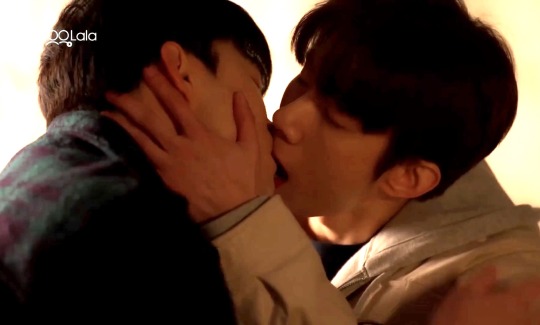
Ongoing Series - Not Thai
To My Star 2 (Korea Viki) Ep 3-4 - So she is a childhood sweetheart ex? Bah. ANNOYED. That said, I did love the way she touches Ji Woo and he instantly checks with baby to make sure he’s OK. For someone who’s instinctive words always cut, Ji Woo’s physical instincts are always the opposite. He’s a great character and must be a lot of fun to act. But ho boy, Korea sure does like to D.W.E.L.L. Seo Joon’s sweaters = killing me softly. Also, catfight! Good musical score on this show. Poor Seo Joon he lost his foundation. Of course, this is going to be an exploration about how he is actually Ji Woo’s foundation. But obvs that’s poetry to come. Why is this show so painfully good?
Old Fashion Cupcake (Japan Mon Viki) Ep 1-2 - We’re gonna have to talk about something up front with this one. And it has to do with the fact that I’m a huge fan of the movie Tampopo. It’s got nothing to do with BL and everything to do with Japanese cinema. Why am I bringing this up? Because what this show does out the gate (and Japanese romance does a lot) is use the most intimate filming techniques (close shots, soft focus, etc...) to portray food and eating (not people/faces). Which means the food = a metaphor/stand in for sexual intimacy, repressed desires, and sexual awakening. I could not be more here for this showing up in a BL. It’s one of my favorite things about Japanese cinema. Add that to genuine mature characters? And I already love this show to peaces, and it’s going to be hard to be objective about it. Nozue + Togawa forever!
Senpai, Danjite Koidewa! AKA Senpai, This Can’t be Love! (Japan Fri Viki) Ep 1 - What is this with JBL opening on a kiss but not closing with one? The par de deux music mouse click thing was cute, and I like we get a JBL from both character’s POV from the start. And they were right, this is a Utsukushii Kare style worship only not whipping boy or attack dog more stalker like SCOY. (Uh oh.) All in all, this is a tense little show. I like THAT but I’m not sure i like this show yet.
Plus & Minus (Taiwan Viki *rec* & GaGa Fri) Ep 11 - Classic ep 11 DOOM. But it will all be okay. Cute side dishes were cute.
Want to See You (Vietnam YouTube) Ep 2 - It’s good, better with the brother character. You should read @squeakygeeky’s analysis of the pronouns, and how they shift, it makes for a much more comprehensible, significant, and flirtatious episode.
Love in Spring (Korea grey) Ep 9-10 - Can’t find subbed anymore. So I guess it’s on hold until I can or it gets distribution.
Kimi no Koto Dake Mite Itai AKA I Only Want To See You (Japan Thurs Hulu JP) Ep 1 - Not available inter.
Getaway (Singapore Mon YouTube) Ep 4 - The acting is just too terrible. DNF
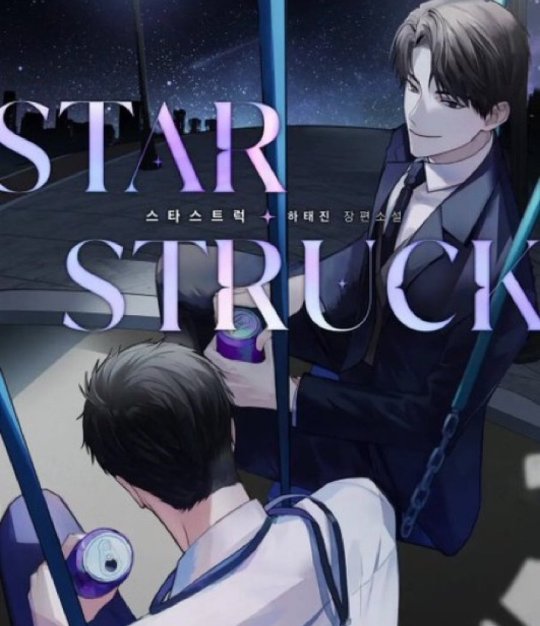
Gossip
Korean gay novel Star Struck to be adapted into a BL. Looks bog standard messy gay long term pining friends-to-lovers, but novel is a good thing, tends to have more meat to work with then a manwha. I wonder if they will do a full length series?
PT is Love announced, this (like Peach of Time) is another Korean/Thai collab project. Looks interesting: moot pining besties, enter university together. investigate MURDER, fall in love. As ya do.
Looks like BounPrem (Until We Meet Again’s WinTeam) have a new project: Even Sun series. Looks like a tourist board promo adjacent thingy.

In Case You Missed It
There’s a new Vietnamese BL (or just gay) movie coming out which looks pretty good, called Tie the Not. LONG trailer here.
Dear Doctor I'm Coming for Soul looks like it’s being made available on YouTube. (Maybe only in part?) I liked this one, recommended with some reservations around an amorphous ending. Doctor and Reaper fall in love.

Next Week Looks Like This:
Unforgotten Nights starts on GaGa, thank fuck, clearly I need to get this snark out of my system. TRASH WATCH awaits.

This week’s best moments?

I love it when a show reviews itself.


(last week)
#this week in bl#BL news#BL updates#BL update#BL in the news#BL episode recap#Thai BL#Vietnamese BL#Taiwanese BL#Korean BL#Japanese BL#live action yaoi#adapted from a manga#Star Hunter Studio#GMMTV#Studio Wabi Sabi#gagaoolala#rakutan viki#Triage the series#Check Out the series#KinnPorsche#Sky in Your Heart#My Secret Love#Love Mechanics#to my star 2#Love in Spring#Spring of Crush#Plus & Minus#Want to See You#Getaway
84 notes
·
View notes
Text
Harry’s House Track-by-Track Review
Overall thoughts: Before I get into each track I just wanted to say, after a few listens, I think this is his best album and I’ve really connected with it in a way I didn’t anticipate. It’s not flawless of course but what album is? Like Fine Line, the production is outrageously good. It’s so well crafted. The highs of Harry’s House aren’t necessarily higher than the highs of Fine Line, but where I think it excels over Fine Line is it feels like a much more cohesive album. I love FL, a lot, but this is a better album listen.
I think this is going to be a rare instance where I don’t read reviews because I just have such a strong sense of how I feel about it already. My thoughts are very clearly defined. While I haven’t read any reviews, I have seen headlines/some music twitter reactions, and a common criticism with Harry is that his writing isn’t “deep”. I’d say this is true in that Harry is not, ya know, Lorde or Joanna Newsom or something. I just don’t necessarily think lyrics need to be ~deep~ for them to be good. I think his songwriting is really strong on this album (with a few exceptions I’ll get into). Not sure where I’m going with this. Just wanted to say that because it frustrates me that we think of lyrics in terms of deep or shallow, as if shallow or fun or meaningless lyrics can’t be good.
Anyway I love it let’s get into the songs under the cut:
Music for a Sushi Restaurant: On my first listen I was so overwhelmed by how *much* was happening in the production, I had no idea how I felt about it as a song. On repeat listens, I think it’s SO fucking fun and I’m very into it. Also, unexpectedly to me, it has some of my favorite lyrics on the album. They immediately made me think of the movie Tampopo, which is a 80’s Japanese comedy that I sincerely hope Harry has seen because I think he’d love it. The playfulness of mixing attraction/desire with food/consumption just does it for me, fully charmed. I think it’s really successful in blending influences (immediately felt Prince obvs but also Paul Simon, even like a Huey Lewis element) to create something that’s a joy to listen to and not easy to pin down. I think it also works really well as the album opener - it introduces musical themes he’ll revisit throughout (walls of sound, horns, sex, nonsensical lyrics, 80s genre blending, etc.). 8.5/10
Late Night Talking: I mean, you know how I feel about this song. First, it has a perfect chorus: lyrically, melodically, instrumentation it’s just instantly classic. It’s one of those choruses where I can’t believe it hadn’t already been written. As I said earlier I love his vocal choices here. I love singing along with it. It’s an easy groove that deceptively has a lot going on. I think that call and response of the chorus and post-chorus at the end brings it home perfectly. Just really satisfying songwriting and I hope radio loves it because it should. At first I thought I preferred the sound of the song with the live horns like at Coachella, but on repeat listens I think it was smart not to do that for the record. It keeps it from being a pastiche in the way a song like this could easily be. 10/10
Grapejuice: Harry in his Sideways era. Has a song ever felt so lived in? I like this one paired with As It Was because altho it sounds different this song is also deceptively sad. Everything is so pretty and melancholy. The vocals are perfectly placed in the mix; as if in the verses he’s already hazy drunk. This song is the best type of easy listening. It’s not boring at all but it goes down smooth as merlot. 9/10
As It Was: Great song we all know this. I think it was a great lead single now that I know what the album sounds like. One thing I really appreciate more after hearing everything is the use of the bells. Several of the songs on the album use heavy guitars and synths to create these explosions of sound and I think the bells are a cool, different approach to the same idea. The song needs something after the bridge switch-up and I like the choice even more now. 9/10
Daylight: I like how much this song lulls you into thinking it’s another easy listening, Grapejuice-type track and then it rocks your shit. The cacophony I mentioned earlier is so perfect here. I’m in love with the instrumentation. “Dip you in honey so I could be sticking to you” is one of my fave lines on the album. Don’t have a ton of deep thoughts for Daylight. I simply love the way this sounds. 9.5/10
Little Freak: Listen, I wouldn’t call this a complete skip because there are moments I like in it but it’s definitely my least fave on the album. It also doesn’t do itself any favors by being before Matilda. I like the chorus vocals and how the second chorus builds atmospherically. Unfortunately there’s more to dislike: I don’t like the sound of this acoustic guitar, the verses do nothing for me, and I don’t connect with it lyrically. The more stream of consciousness lyrics work better elsewhere on the album but not here. Also the use of “jezebel” and the yoga body line are no bueno, which is a shame because I think his writing is strong on the album and he writes with a lot of sensitivity in other songs. A miss! I can imagine liking a version of this song but not as it is. 3.5/10
Matilda: You know I was unsure going into this one after hearing Harry and Zane talk about it. I thought the sentiment was sweet but could easily see a song like this turning out trite. I fucking love this song. I think the songwriting is stunning. The guitar is so pretty and his voice is deeply felt. The bridge and last chorus elevate it even further. The instrumentation is so minimal but feels really full. And just personally I uh…feel this one quite a bit so yeah can’t rave about it enough. 10/10
Cinema: This song fucks. I feel like some people aren’t in the lyrics here (or think they’re crass because of the wet line?). I think it's extremely clever and just great songwriting here once again. Besides the obvious meaning (filmmaker/pop star, using pop as innuendo), there’s also the element of watching (‘I like it when you dance for me’, ‘getting yourself wet for me’) that plays into the cinema concept. It’s just really smart pop writing. Musically, no surprise I’m obsessed with it. It’s my sort of thing. Another perfect chorus. The ‘cinema’ screams mixed far back was another excellent choice production-wise and thematically. The outro is a fucking dream. 10/10
Daydreaming: One of the most unexpected tracks - Harry with a Quincy sample, who knew! Really like this one too. Great BVs. Harry’s voice is so light and then the power of those soulful belts and falsettos? Delicious. I like that it doesn’t overstay its welcome - just long enough. 8.5/10
Keep Driving: I was very lukewarm on this song for the first few listens but it’s really grown on me. In a fun turn of events, I connected with this song once I was, you guessed it, driving. Whereas I dislike the lyrics in Little Freak, this feels like a better version of that style. Another lived in feeling song (‘hash brown, egg yolk/I will always love you’ makes me feel so cozy in that soft voice). What really does it for me with this song is the chorus. I just love the way it sounds underneath his voice. I’m curious how I’ll view this one as time goes on. 8/10
Satellite: I think this is my favorite track on the album. This is a perfect pop song. It’s so fucking smart and the production is next level. The spaciness in the intro. The lyrical concept. His vocal choices are a highlight of the album and there’s no better example of that than here. The way he sings ‘spinning out waiting for ya, to pull me in’ captured me instantly. Then the way he switches to the falsetto to musically mimic the meaning of ‘I can see you’re lonely down there’? The ‘ooh ah ooh ah oohs’ in the background of the verses? Perfect. I can’t overstate how much I love the synths throughout this song. And then my favorite ‘wall of sound’ moment on the album brings it home. One of the best songs he’s ever made. 10/10
Boyfriends: This song is funny because I think on paper I shouldn’t like it as much as I do. Unlike Matilda, the lyrics are on shakier ground. Like, if I hadn’t seen his interviews talking about this song would I assume there’s self awareness in these lyrics? I can’t un-know that so I listen to it believing the self awareness is there, which these lyrics definitely need to work I think. I believe it’s there in part because of when he wrote it. He wrote a lot of songs for FL with a whole lot of self loathing, and so I can believe it’s here too. But I can easily see if he didn’t successfully get that across in the song to other listeners. Fortunately for me, more than the lyrics (which are fine and her certainly delivers them), I just love the way this sounds. It’s right up my alley. 8.5/10
Love Of My Life: I’d say since my first listen I’m less taken with this one but I do like it. I wish it was a little longer, especially as a closer. Thematically it’s a good closer. I really like the lyrics, particularly in the second verse (I don't know you half as well as all my friends / I won't pretend that I've been doin' everything I can / To get to know your creases and your ends / Are they the same?). Very clever and rly emotionally connected to that part. Couldn’t help but think of Nick lol at me. I like the heavy production on it - keeps it from being too sentimental for its own good. Imagine if it was a straightforward piano ballad? I like that he didn’t go that way. It feels right for this album. 7.5/10
#alright that's it I APOLOGIZE#i just needed to think this all out for myself to process#harry's house#harrys haus#harry
22 notes
·
View notes
Note
Between A Little In Love Hisana and Tattoo Artist Hisana: which one of them is more likely to be on the Wall of Flame at Tanpopo?
Like one of them has had vastly more out and about with Rukia time but on the other hand I don't know if Tattooverse Rukia would have been to the academy's favorite greasy ramen joint or even have the same flavor of wistful I never got to go (because I was the Big Deal Daughter of the Kuchiki) feelings that Heart Rukia does.
Hisanas ability to pass the atomic ramen challenge is not in question one little bit for sure. I do think Rukia could do it faster but Hisana could do it with more dignity and would have a more flattering finishing picture.
I keep forgetting about this ask and finding it, but that's okay, because then I get to think about it again, which is fun, because thinking about Subtle Differences Between My AUs is one of my favorite things.
Every version of Hisana I have ever written could make it onto the Tampopo Wall of Flame, even Squad 11 AU Hisana, but I do want to consider that aspect of it, anyway.
a little in love Hisana was very sick, she was about as close to dying as you can get without actually dying, but has since made an incredibly recovery and refuses to stop recovering. To me, this is a process of spiritual strength training, and the fact that she got herself from where she was into child-bearing shape is the equivalent of achieving bankai. Hisana from the Soul Society Tattoo Artist AU never got as sick, both because she was more circumspect in her trips to the Wilds, because she had Rukia waiting for her back home, but also, she never suffered the guilt and emotional devastation from abandoning Rukia which was, in my opinion, what really killed her in canon. As a consequence, though, she never went through the recovery either, and so she's just generally a little delicate in constitution. So, on this point, alil Hisana would destroy Tattooverse Hisana in a head-to-head challenge.
Onto Tampopo, and its relative importance. Tampopo, named after the deeply weird 1985 Japanese film, is a ramen restaurant that Rukia makes Renji take her to in the first chapter of The Heart is a Muscle. It is a popular restaurant among Academy students, and if you can finish a bowl of their painfully spicy atomic ramen, it's free (and you get your photograph on the Wall of Flame). Rukia always wanted to go as a student, but given her non-existent finances, was afraid of not being able to meet the challenge, and never told this to Renji at the time. Renji had been there with Kira and Hinamori in his later school years, but never thought of it as anyplace special (he would never order the atomic ramen, it's probably the only thing in Soul Society that could actually kill him). It is the first place they went after the Soul Society Arc, it was basically Ground Zero for making the decision to rebuild their relationship. The place is emblematic of time they lost as kids, of all the things they couldn't bring themselves to say out loud, and I often make them go there when they need to process feelings or Feel Nostalgic or have difficult discussions.
Tattooverse Rukia has definitely been to Tampopo, and has definitely been on the Wall of Flame. It's part of the student experience, so she's been, but it's not anything special to her, apart from the fact that it is sometimes useful for establishing street cred (street cred is very important to Tattooverse Rukia). Would she bring her big sister there? A solid maybe. On one hand, my Hisanas tend to steer clear of shinigami territory. On the other, Tattooverse Hisana is on the dirtbaggier end of my Hisanas and I could see her and Rukia getting embroiled in a bragging rights battle. It's also possible that they need to get out of Kuchiki earshot to talk about things like the hot Rukongai boyfriend Rukia isn't supposed to have.
Conversely, I do not think a little in love Rukia has ever been to Tampopo! Her relationship with Renji is (a) much more Kuchiki-centric and (b) tends to eschew nostalgia in favor of moving forward instead. In fact. In fact, one of the reasons for (b) is that Rukia can't fully face her separation from Renji because of Hisana--if she feels too much regret about leaving Renji, it's like she would have condemned Hisana to die, but if she doesn't feel enough regret, it implies that she doesn't believe how much Hisana regretted leaving her. Even if Tampopo were fulfilling its usual role in this story, it is absolutely not a place she could take Hisana, at least not as of the place where I last left of. Presumably the Kuchiki sisters are going to have to process of some of this eventually.
#i know everyone loves esoteric posts where i talk about subtle differences in the 900 AUs i have written#the reason i remembered this ask today was because one of your comments made me want to rank all of my renjis#in order from Most Game to Least Game#i cannot tho they each have their own very specific brand of Getting It Despite the Odds#thank you very much for this ask you are a True Friend#my fanfic
13 notes
·
View notes
Text
ok making an official guide to juzo itami's filmography <3
with itami, you will get beautiful humanist movies about the beauty of love and life and human connections but done in a format that is typically associated with made for TV movies with like silliness, and most of the time a lot of tackiness. also a lot of sex or sexual undertones (he was mentored by nagisa oshima) + political commentary (on people from the government, yakuzas and so on) but still in that weirdly elevated lifetime movie style (which works so well obviously). so like overall serious subjects but dealt with the codes of popular entertainment (cop movies, westerns, comedies and even erotic films kinda). also one thing to note is his amazing sense of visuals, you can count on him to always have amazing and very fun costumes and interiors. ok starting the guide now 😁😁😁😁💋💋💋💋💋
1 - the funeral (1984)

movie about funerals and grief and fucking raw in the forest. actually the best depiction of funerals ive ever seen as in a very solemn moment cohabiting with the most simple and stupid daily events of life in a very touching way. starring his wife nobuko miyamoto and tsutomu yamazaki, another one of his main actor
2 - tampopo (1985)
gorgeous gorgeous movie about food and love and how both of these notions intertwine. probably his most famous movie, not my favorite but still an amazing film. starring the same girlies from the funeral because itami is going to work with the same actors for all of his life !
3 - a taxing woman (1987)
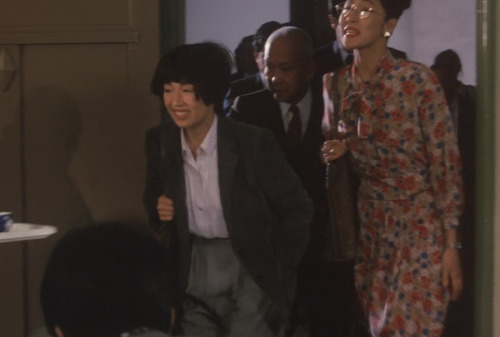
a movie about tax evasion with nobuko starring as a tax investigator!!!!!! one of these itami movie where the line is kind of blurred and it really is a fun little cop movie but still insanely fresh and charming. again nobuko miyamoto and tsutomu yamazaki being great as a duo + amazing cigarette acting and fendi glasses
4 - a taxing woman 2 (1988)
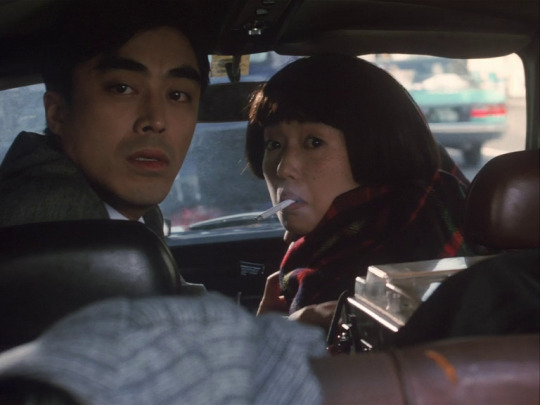
not as good and emotional as the first one but still fun. can't really remember honestly but the entire movie is about a religious cult and the amoral antics of their leader which is kind of a daring thing to do. nobuko gets a little twink advisor working under her and itami's third main darling masahiko tsugawa gets a bigger role
5 - tales of golden geisha (1990)
so bad 😭 do not waste your time. gay scandals at the bank, nobuko girlbossing it up with a buddhist bishop and a geriatric gouvernement official with an eye-patch. very big turkish soap energy not in a good way
6 - minbo : the gentle art of japanese extortion (1992)
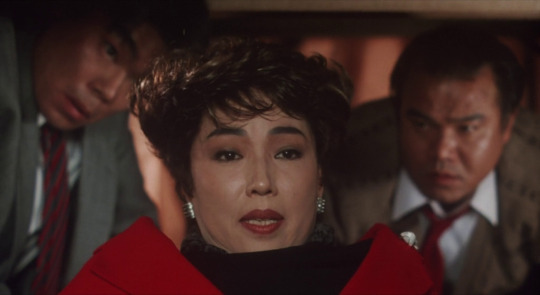
another movie about scamming and plotting, this time starring yakuzas!!!!!!!! this movie got him killed and it's not even good BUT we get introduced to sexy sexy takehiro murata and nobuko gets to slay in her 80s yuppie looks
7 - a quiet life (1995)

kind of a departure for itami because this movie is about two siblings in the countryside figuring out life on their own while the adults around them struggle to do the same. sometimes very sweet, sometimes very clumsy. nobuko miyamoto has a small part and stuns very hard. overall a weird humanist movie with its itami true crime podcaster moments
8 - supermarket woman (1996)
very cute film about hope and standing up together as a community, very sweet comedy where we get to see nobuko miyamoto shining for the 1000th time with her little bowl cut. very good intro to his filmography in my opinion!!! highly recommend this movie and i think it should be shown all around the world because its such a beautiful universal little comedy
9 - woman in witness protection (1997)

🚨 LEÏLA'S FAVORITE ITAMI MOVIE 🚨 nobuko miyamoto plays an egocentric DIVA separated from reality in what some may call the goldie hawn from first wife club register. amazing performance by nobuko who truly has the best range there is if you take a moment to look back. beautiful and sweet, heartwarming and a bit ironic. if you are into dramatic old women with ugly little dogs and cults, this is for you. a gay classic about a woman running away from death threats made by a man running away from death threats
#all of the illustrations are pulled from the official medusa1597 VLC archives hence the quality#there are two movies missing in that list because i havent seen them yet#but anyways 😁😁😁😁😁 yes#me as a cinema journalist: guysssss isnt this so silly its like silly right omg
11 notes
·
View notes
Text
Tampopo
Tampopo was a fun watch for me, but I’m glad we did not have to watch it with the rest of the class because there were some saucy bits in there I would not feel comfortable watching with a group of 20+ people. Tampopo is a comedy movie about a struggling widow trying to perfect the perfect ramen recipe in order to build a successful shop, and with how boring that plot sounds, it was crazy to see what Itami Juzo did to keep us on our seats.
Initial Reactions
For starters, it was interesting to see a young Ken Watanabe playing the role of Gun in the movie. It seems that in American cinema, there isn’t a large number of Japanese/Japanese-American superstars in the acting field, and so seeing Ken Watanabe made me feel glad that someone was able to break through that mold.

I also liked the irony in the beginning of the movie, where the “Man in the Suit” (for lack of a better term) chastises others for eating loud foods during a movie, despite the fact that the movie we’re about to watch is about ramen, a notoriously slurpy food. This character also has some of the best and strangest scenes, although I do hold some reservations about his morality, as the weird oyster scene with the young girl seems like he’s grooming her, which was kind of disgusting.
An interesting part of the movie that hopefully we might see in subsequent films is the inspiration it took from other films we have already seen. This is most notable in the formation of a ragtag ensemble of ramen experts being Seven Samurai-esque, and the whole film having a Western feel to it, with Goro’s cowboy outfit being the focal point of this. This really reinforces the impact of the old films we watched, and I much enjoyed it.
Themes/Analysis
To be completely honest, I couldn’t really pinpoint any themes that I felt were worth writing about. The determination of Tampopo to be the very best ramen cook (that no one ever was) might be the clearest theme to look at, but I feel as if analysis about that has been written into the ground already, as that’s a central plotline in so many movies. However, I feel something that might be worth writing about for this movie might be the that we don’t need themes to enjoy films, especially comedies. I didn’t go watch Ghostbustersto learn a deep lesson, and I don’t think Tampopo needs this level of analysis either; it’s just a fun movie with unique shots and stories that make it enjoyable to watch.

Final Thoughts
Tampopo is definitely up there in my rankings of movies for this class, despite the fact that it didn’t drive home a central message or have an overarching theme. It was a fun watch with wacky characters, even wackier hijinks, and beautiful food that made me hungry for some ramen.
6 notes
·
View notes
Text
"Tampopo"
I really enjoyed Tampopo and I’m going to guess that many of my classmates enjoyed it as well. The film was incredibly charming and wholesome with everything from the characters, to the plot, to the visual presentations. The film does a wonderful job at examining and playfully poking at how food and culture intertwined with another.
The main plot follows Tampopo and Goro as they try to recreate Tampopo’s struggling ramen shop. Goro, who is a truck driver, surprisingly knows a lot about ramen and decides to help Tampopo out of goodwill. Their dynamic is one of the sweetest elements of the film. It was rather refreshing to see a male-female relationship that isn’t toxic and both parties seem to really be equal with the other. I loved seeing Goro’s character be cool and masculine without putting down his female counterpart, or even the other male characters. One of my favorite moments of his was when he talked about his wife and kids, saying he wanted to give them a warm home but he ended up not knowing how to act in a happy home. He showed an honest and vulnerable struggle that I believe many men in that time or even now have gone through. I think his interpretation of masculinity also shows in how he acts and talks in such a “manly” manner but is actually very sweet underneath.

The switching between the Tampopo storyline and the random scenes that weren’t related to them were confusing to me at first. Since the man in the white suit broke the 4th wall and talked to us in the first scene, I interpreted any scenes with him and random people to be reenactments of real-life. All those scenes depicted food’s involvement in all aspects of life, from birth (the mother giving milk to the baby), to sickness (the mother getting up to cook before dying), to death (the man in the white suit’s final words about yam sausage). The director also poked fun at “proper mannerisms” that accompany certain foods, especially foreign cuisine. Scenes like the group of associates ordering French food they don’t know or the ladies learning how to properly eat spaghetti introduced to the audience how ridiculous the idea of properness is when it comes to enjoying food. Later on in the film we meet the group of homeless people who have exquisite taste and are experts of gourmet food. According to their class in society, they should never have even had access to these foods, yet they’ve surpassed the barriers to becoming experts.
Japanese food is one of the most famous aspects of Japanese culture, and I think this film did a terrific job at capturing its beauty. There are many layers to how food came to be and there continue to be many factors affecting it as society grows and changes.
2 notes
·
View notes
Text
Tampopo (1985) dir. Juzo Itami

I've long been looking forward to this film in the semester for a while now, and I'm super stoked we'll be discussing it in class this week. It's a film I highly cherish that's not only about the love and beauty of ramen, a dish I love very dearly, but also a fun and riveting, erotic comedy about food and helping others in need.
The didacticism of the process of making a quality bowl of ramen is not so much an annoying, heavy burden as it adds to the appreciation of noodles and the process of making it that Itami attempts to show. In fact, the first time after I watched this, I'd taken up the habit of petting my meats in my noodles with my chopsticks before digging in. It is a very provocative, inspiring film in my experience for sure.
The incorporation of the western film, which humorously spawned the idea of the "ramen western", was also fun to see. Seeing a couple cowboys want to show the art and process of making a quality bowl of ramen is certainly an interesting twist on the typical western genre rilm. And with its heavy emphasis and close-ups on food, the human body, and many of its characters' expressions, Tampopo is not only, to me, an extremely well done comedy, but a great exploration into how far food porn can be taken with humans and noodles.
The one thing I did not exactly appreciate seeing in this film is the treatment of Tampopo, the widowed mother and aspiring restaurant owner. Sure, it's one thing to try and lead someone in the right direction through negative reinforcement and whatnot, but I could not help but feel pity for how much consequences and waste of her attempts at making the ramen broth that she's had to discard.
Honestly, I would've loved to see this screened as part of class rather than seeing it on my own, but perhaps it's for the better as Tampopo contains a lot of sensual scenes that some people may feel awkward seeing together in a big classroom. I really do love this film though, and look forward to discussing it with others.
2 notes
·
View notes
Text
Notes for The Vanishing Prince: Chapter Eight
Chapter Eight has been posted! I don’t have nearly as many notes this time. (Which is good, because it took me a lot less time to draft this post. XD;) Still, I did want to bring up a couple of things that I thought might be worth mentioning.
And as always, I updated the inspiration board for this fic over on Pinterest, so feel free to check out the new images if you feel like it/have access to Pinterest. (The most recently added images are at the top, so when you scroll down, you’re basically going backwards through the story.) And with that, onto the notes...
(Cut for the ramblings of a writer who overthinks everything, and also some very important notes about omurice, because I LOVED writing that part…)
Akashi and His Mom, Plus Heian Poetry
This is basically just a note to say that I really loved being able to write the scene with Akashi and his mom. <3 I think it’s the first scene of them together that I’ve posted online…? (Though I’ve written lots of scenes where Akashi talks about his mother, or has a very brief memory of her.) I wrote something short about them for Mother’s Day years ago, but I never finished it, sadly. So it felt nice to finally be able to include a glimpse of how I see their interactions.
Also, the part about Japanese poetry is indeed a thing! A lot of the Heian-era poetry in Japan revolves around themes of courtly love, and because of how courting worked in that time period, they often feature various forms of pining-for-your-lover-from-a-distance. So like Akashi says, there was a folk belief that if you were missing your lover enough, you would appear in each other’s dreams, so that you could at least be together in the dream world. Like this site about the poet Ono-no-Komachi explains, “the intensity of one's feelings for one's lover could induce him to appear in one's dream or could cause one to appear in his dreams.” I always thought that was a fascinating concept. (Also the idea that Akashi would be studying those poems at six years old is just really funny to me? But anyway. //laughs)
Akashi’s Issues, Poor Guy
I don’t want to go into too much detail here, but I thought it might be worth mentioning… One of the things I really wanted to explore in this fic (and the series as a whole) is the reality that working on mental health problems can be a very difficult and often nonlinear process. While it’s not the only plot line of the story—and I definitely don’t claim to have done a great job with it by any means, though I try my best!—I felt like it was important to take the time to show how a person’s struggles with mental illness don’t just get solved overnight. Akashi has been fighting a lot of the same problems throughout the series, because these kinds of emotional hang-ups and coping mechanisms aren’t easy to change.
To be honest, it felt somewhat counterintuitive to me as a writer, because back when I was trying to publish original stories, there was this idea that you weren’t supposed to write characters “brooding” for too long or repeat the same issues/mistakes over and over. Basically, the characters needed to show growth quickly, and passages that could be seen as repetitive should probably be cut, because they weren’t “progressing the story.” While I can understand that idea in a writing sense, I tend to feel like it’s not a very fair representation of what it’s like to struggle with mental health. (Which also applies to a lot of other kinds of personal issues/growth as well, honestly. Change is just hard in general.)
So I’m definitely trying to walk a balance between not writing the same scenes over and over, while also showing Akashi’s struggles as an ongoing journey for him. The latter was really important to me, both as a writer, and as someone who’s had cycles and setbacks with my own mental health stuff.
Bokushi Is Still Kind of an Asshole, Lol
On kind of a similar note… I have no idea how Bokushi comes across as a character at this point in the story? //laughs But if anyone finds him to be kind of a jerk, I will say that’s an intentional choice, at least. Ideally, I wanted him to be likable but still flawed, and I do find him hilarious personally, but… Hopefully it’s obvious that I don’t think he’s a perfect person, by any means. XD;
I think I’ve said before that I really want to use this storyline as a chance to explore my view of his character—and the why/how of how his personality differs from Oreshi—in as much detail as possible. Hopefully it ends up coming across as nuanced in the long run… But if nothing else, I hope it’s at least fairly interesting to read! Because I do find him extremely interesting as a character.
Omurice!
So here’s my major cultural note for the chapter… I’m guessing a lot of people are already aware of the fact that Furihata’s favorite food in canon is omurice, since it tends to pop up in AkaFuri fics a lot. For anyone who’s not familiar with the dish, omurice (a borrowed compound word for “rice omelet”) is a Western-inspired Japanese dish that’s extremely popular as a comfort food. (This type of Western-inspired cuisine is generally called yoshoku. Which I think I also mentioned in Storming the Castle, but… it’s been awhile? //laughs)
So basically, omurice consists of pan-fried rice that’s usually seasoned with either ketchup (often considered the more homey/classic version) or demi-glace sauce (more often seen in restaurants). Like in a lot of fried rice recipes, vegetables and meat are added to the rice, and then the whole thing is served beneath a super-fluffy egg omelet. It typically looks like this, or this. I’ve made it before, and enjoyed it way more than I expected. So while I was writing this chapter, I couldn’t resist preparing one of my own (for research purposes of course, lol):

I’m not a good cook, to put it mildly, but I was proud that this one came out a little better than the last time I tried it. XD
To me, the coolest thing about watching someone prepare omurice is the part where they plate the omelet... This can be done a few different ways, and some take more skill than others. (I totally cheat, by making a single-layer omelet and just setting it on top of the rice as best I can. XD) The most difficult way (and the way Furihata does it in the fic!) is to layer the omelet on top of itself while you’re cooking it, so that it becomes a kind of pouch that you can slice open over the rice. There’s a great animation of this process over on my Pinterest board, and I also really recommend two videos on Youtube if you’d like to see more… This clip features an amazing chef from the most famous omurice restaurant in Kyoto, and this one is an iconic scene from Tampopo, a classic Japanese film. To learn more about the context of those clips, and about omurice in general, I also recommend this really fun article about it.
The thing I find the most interesting about omurice is that it’s such a popular comfort food, so it’s often associated with home and family life. That’s why in The Fast Train to Kyoto, I was inspired to have Furihata’s mom make him omurice when he’s having a bad day. At the same time, though, the dish can also have a bit of a “lovey dovey” connotation to it? Like how in this survey it was one of the top foods that Japanese guys said they would like their girlfriends to make for them. (Hence the trope of decorating the omelet with a ketchup heart, as Bokushi mentions, in his extremely Bokushi way. //laughs)
For all these reasons, I tend to think of omurice as the perfect favorite food for a character like Furihata. It definitely inspired how I write about him, especially when it comes to things like his family life as well as his romantic side. <3
So How About All Those Storming the Castle References Huh
This is just a quick note to say that if anyone happened to be confused by some of the references in this chapter, a lot of them were referring back to events from Part Two of Storming the Castle. (Like the first time Furihata saw Akashi’s dad, the huge portrait of Akashi and his parents in the ballroom, the butsudan altar, the secret passage with the stairs, the ghost, etc, etc… Also the character of Ginhara, since he’s the butler who runs the mansion in Tokyo.)
I tend to be pretty indecisive about exactly how much detail I should use to explain something that happened earlier in the series… Since I know some people might not have read the earlier fics, and at the same time, I don’t want to be too repetitive for those who have? In any case, if anything was confusing/unclear, it was probably a callback to that story. (Oh, and there was also a callback to The Fast Train to Kyoto, about when Akashi and Furihata talked about becoming friends!)
Well, that’s it from me this time around. Thank you so much for reading, as always. As I mentioned in more detail over on Ao3, I really hope everyone is staying safe where possible, and supporting each other in this difficult time. I will do my best to get the next chapter posted very soon. <3
#the vanishing prince#kat writes fanfic#long post#text post#akafuri#I'm so glad I was finally able to share all those omurice notes lol#and also share the omurice cooking scene!!#I never thought that Furi would end up preparing a rice omelet for Bokushi haha#and I was just really amused by his utter disdain for the ketchup lol#definitely inspired by all my friends who were like why would you fry rice with ketchup and I'm like IT'S BETTER THAN YOU'D THINK IT'D BE#anyway#this was also a tough chapter to edit because it was SO LONG#and I felt bad for Oreshi#and these boys have complicated feelings#but I hope it was enjoyable to read because I did have fun writing it <3#kat writes about basketball dorks
21 notes
·
View notes
Text
Tampopo – Itami
The film for this blogpost is Tampopo by Itami. It is a comedy movie that revolves around a trucker named Goro and a group of other people who are recruited along that work together to help a ramen shop owner, Tampopo. They help her improve her recipe as well as renovate her restaurant to a great degree which helps her to finally to run a successful ramen shop. There were also a number of side stories that ranged from humorous to bizarre.
Of the short stories, I really enjoyed the one where there was a group of women learning the correct way to eat pasta at a western restaurant. They were trying to eat the pasta in complete silence without making any sounds since that was the European way. However, the white man in the restaurant was sloppily and loudly slurping pasta a couple tables away. This clearly frustrates the woman teaching the others, but eventually they give up trying to eat it quietly and follow in the footsteps of the man. I thought this scene was really well done, the contrast between the women trying to eat politely while respecting European culture while the white man ate with no manners was really funny to me. The sound the of the slurping, especially after all the women joined in, was so silly that I just kept laughing as the scene went on.
The other short story I really enjoyed was the one where the group of businessmen went to the fancy French restaurant for lunch. The first guy orders something, but it appears to be at random since it is implied that he cannot read French. Subsequently, all the men after him except the last one order the same thing. The last guy, who is the new guy who they handed all their bags and treated poorly, read French really well and starts making a completely different in depth order. While this goes on his superior is kicking his leg under the table as he is embarrassing him and the other people. By the end of it everyone is embarrassed by their inability to read or speak French in comparison to the new guy that they are literally red from embarrassment. Another really well done comedic situation that shows the senpai kouhai relationship found in Japanese work culture in a humorous way.
I also enjoyed the comradery between the main trucker Goro and Pisken as they bonded over rebuilding and helping Tampopo with the ramen shop. It was nice to just see a story where people put aside their differences and work together towards a common good.
It was cool how much in depth the movie went in about how to cook ramen, while they were helping Tampopo to perfect her recipe. For example they talk about what temperature you should cook the broth, how the broth should be cooked, what goes in ramen broth, the texture of the noodles, how to serve the bowl, why they check every bowl after getting it back, and more. This was one of the more interesting parts of the movie, as I have always enjoyed learning about cooking and different types of food.
There was also the one guy in the fedora and white suit and his girlfriend in a number of really bizarre side stories. I’m not sure that I will be able to see lemons and eggs the same after seeing what they did to them lol. I know it was meant to be humorous, but I couldn’t help but feel a bit grossed out by most of their scenes.
The side story where the wife dies after cooking for her family for the last time was really sad for me. It served as a criticism of the way men treated their wives at the time in Japan, and the sexism they faced and currently face. Similarly, even Tampopo faces some sexism, such as when they comment that its impressive that she could run a ramen shop despite being a woman.
Lastly there was the side story about the old woman touching all the food in the grocery store. I also thought this one was pretty funny as its something I could see my elderly grandmother doing, and watching the clerk chase her throughout the store while the grandma had a fun time destroying the food was very funny to me.
Overall, I really enjoyed this film. I felt that the humor for the most part really resonated with me and could see myself watching this movie again because of how funny it was.

0 notes
Text
Posting: Tampopo
I hope everyone had a great spring break! The movie this time around is Tampopo, a 1985 food comedy directed by Juzo Itami. The film follows Goro, a trucker, an his efforts to teach the titular widow Tampopo how to make the perfect bowl of ramen and revive her ailing ramen shop.
In terms of first impressions, I very much like this film. Although I think I prefer the previous film that we watched a bit more, I greatly appreciated how this film seemed to be the first one that was more of a “crowd-pleaser” in a sense. More than any other film, it has overtly comedic elements and a fairly light-hearted tone and themes that set it far apart from most of the other films we’ve watched. It definitely feels more like a modern movie, and aside from maybe Seven Samurai is the first that doesn’t feel like it has a grand, harrowing message to deliver about society or Japan’s history, nor does it feel exceptionally avant-garde like Double Suicide or Funeral Parade of Roses.
This of course is not to say that the movie didn’t have any critiques or interesting ideas to convey. On the contrary, it does some pretty cool things with food, particularly centering around our perceptions of food and how all of the things that surround a dish that are not directly linked to its flavor can influence our perceptions and enjoyment of it. Indeed, during Tampopo’s training the mastery of flavor and creation of ramen dishes is the very last thing that she attempts to learn. Before that, she must learn how to properly ladle, how to properly attend to customers, and other miscellaneous skills. With the aid of a band of unorthodox culinary experts, she first learns how to be a ramen shop chef before learning how to make the ramen itself.

This focus on construction, presentation, and mannerisms are a key part of the film, and many of the side-stories explore this idea through a variety of lenses. A lower ranking salary man is able to show-up his superiors via his extensive knowledge of french cuisine. An elderly lady disgusts and irritates a shop owner by doing nothing but squeezing food. A family bitterly enjoys the final meal that their mother has cooked for them. And of course the main side story involves an odd gangster-like character that frequently explores the erotic and passionate sides of food that are equal parts uncomfortable and amusing. All of these contribute to the idea that how we look at food (and those eating it) has a great affect on how we consume food. For something that ends up in our stomachs at the end of it all, we pay meticulous attention to how someone eats, under what circumstances the food was made, and how the preparer has treated us as they make it. This basic idea lends more absurdity to the erotic side story, and more satisfaction to the main plot as Tampopo masters these intricacies of the culinary art. Indeed, she must even learn to get over the sight of blood and viscera, as she has to learn to work with bloody pig heads and soft-shell turtles on her way to make the perfect ramen.
All in all, I really liked the film and greatly appreciated its lighter tone and fun critiques of what makes good eats good eats.
0 notes